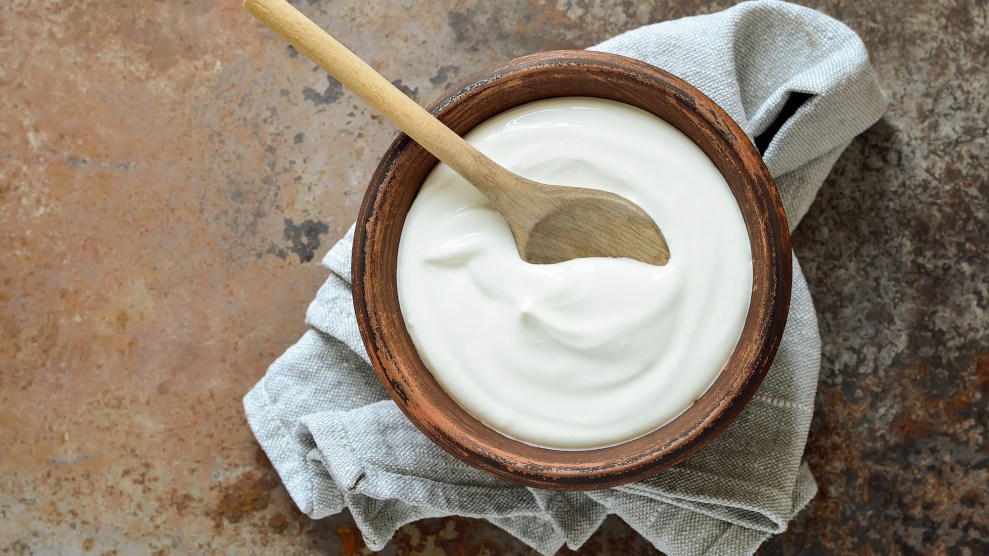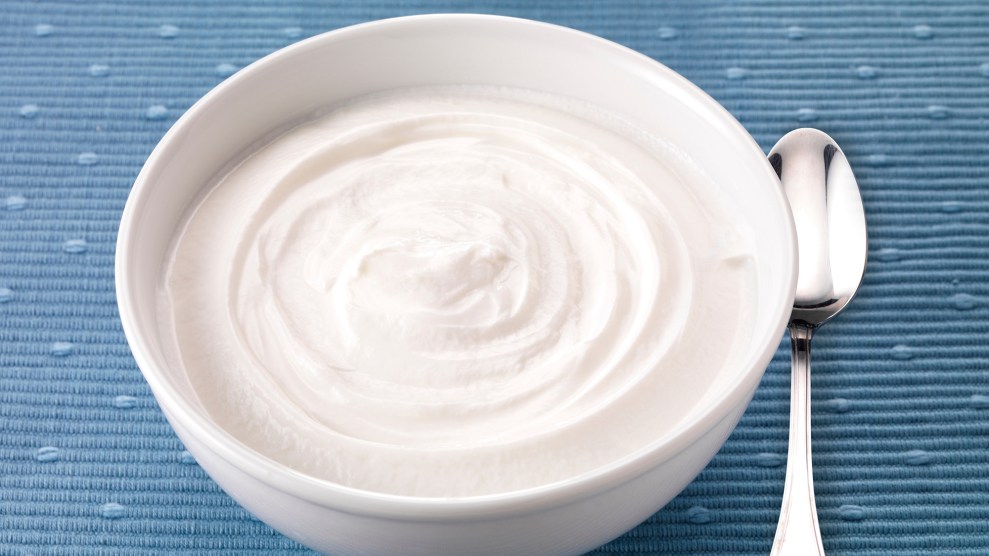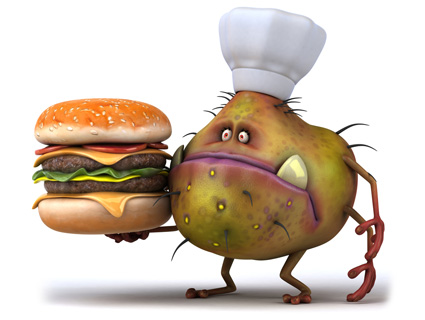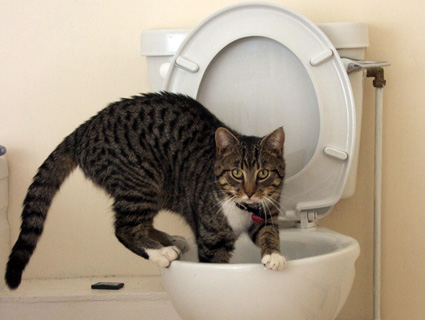
<a href="http://www.istockphoto.com/photo/homemade-yogurt-gm564581946-99013249?st=_p_yogurt">fortyforks</a>/iStock
The Atlantic’s Ed Yong is one of our most vivid and compelling science writers. Late last year, he came out with I Contain Multitudes, the best book I’ve read about the microbiome—the universe of living creatures we harbor within our bodies.
For the newest episode of Bite, the Mother Jones food politics podcast that I co-host (subscribe here), I caught up with Yong. He explains why we should thank microbes not just for maintaining our immune systems—but also for preparing Earth to habitable for more complex creatures. We also discussed why we should abandon the concept of “good” bacteria that boost our health and “bad” microbes that makes us sick—the reality is much more interesting, he says. And he explained why our bodies are really a “vast, interconnected set of habitats,” including rainforest- and desert-like ecosystems.
He also threw shade on claims made for probiotic supplements and fermented foods like yogurt as a boon for our biomes. While probiotics and yogurt do teem with microbes, he writes, they may not be “important members of the adult gut.” And although these tiny critters may be robust enough to survive the trip through our digestive tracts, they don’t seem to affect the composition of our biomes, he says, pointing to this 2011 study tracking how yogurt consumption affected the biomes of twins. The bacteria delivered by yogurt and supplements pass through our bodies “like a breeze that blows through two open windows,” he writes. And despite great claims made about probiotic supplements, they’re “medically underwhelming”—although yogurt has shown potential to help with some forms of diarrhea, he adds.
Yong also brought a something new to my knowledge about the many functions of mother’s milk—among other things, it may “provide babies with a starter’s pack of symbiotic viruses.” That’s a good thing, because these viruses help set up a functioning immune system.
Our interview begins at 8:52, after my co-host Maddie Oatman’s visit with pancake-making Somali refugees.

















